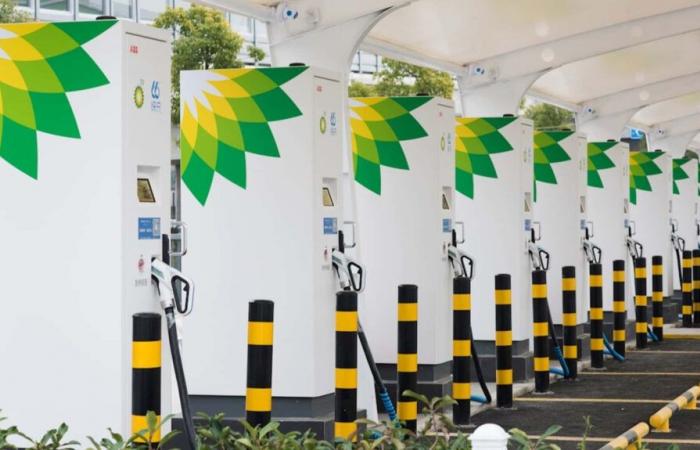Electric car news
The oil industry is facing unprecedented upheaval in the Netherlands. British Petroleum (BP), one of the giants of the sector, has just announced a decision which marks a turning point in the history of the automobile: the sale of 310 service stations in the Netherlands. This news raises many questions about the future of mobility and the strategies of major oil groups.
The decline of traditional gas stations
BP justifies its decision with a simple but implacable observation: traditional service stations are no longer profitable in the Netherlands. The costs of operating and renting land have become prohibitive in the face of drop in attendance of these establishments. The main reason? The meteoric rise of electric cars on the Dutch market.
The figures speak for themselves: by the end of 2024, it is estimated that more than 50% of new vehicle sales in the Netherlands will concern electric models. This rapid transition to electromobility makes the traditional business model of gas stations, based on the distribution of fossil fuels, obsolete.
A trend that extends to other major players
BP is not alone in this situation. Other oil giants are following suit:
- TotalEnergies recently sold all of its service stations in Germany and the Netherlands to the Canadian group Couche-Tard, for a total of 1,590 points of sale.
- Shell plans to close at least 1,000 gas stations across Europe.
These strategic movements demonstrate a collective awareness within the oil industry. The energy transition is no longer an option, but an economic necessity.
The financial issues of this restructuring
The sale of BP service stations represents a considerable financial stake. Although the exact amount of the transaction has not been revealed, it can be estimated at several tens of millions of euros. To give you an idea of the scale of these investments, know that Shell recently paid 12.3 million euros for the rental of a single service station on the motorway linking Amsterdam to Utrecht, for a period of 15 years.
This massive sale operation raises questions about the future of these spaces. Will they be reconverted? Sold in bulk or in batches? BP has not yet communicated on its precise strategy, leaving doubt about the future of these emblematic places in the Dutch road landscape.
The strategic reorientation of the oil giants
Faced with this paradigm shift, oil companies are not sitting idly by. They are massively redirecting their investments towards the energies of the future:
- TotalEnergies is banking on the development of a hydrogen distribution network.
- Shell accelerates the deployment of electric charging stations across Europe.
- BP is diversifying its activities by investing in Gogoro (leader in electric scooters in Asia), buying Superchargers from Tesla, and converting old refineries into offshore wind farms.
These initiatives demonstrate the desire of historic oil players to remain relevant in a world where sustainable mobility becomes the norm.
The impact on consumers and road infrastructure
You may be wondering how these changes will impact your daily life as a driver. In the short term, you may see a reduction in the number of traditional gas stations, particularly in urban areas where the transition to electric is fastest.
However, this development will be accompanied by a multiplication of electric charging points. Former gas station locations could be converted into fast charging hubs, offering new services tailored to the needs of electric vehicles.
It is important to note that this transition will not happen overnight. Thermal vehicles will continue to circulate for many years to come, requiring the maintenance of a minimal fuel distribution network.
Towards a new mobility model
BP's decision in the Netherlands is just the tip of the iceberg. It symbolizes a profound change in our relationship to mobility. Gas stations, as we know them, are set to radically transform.
Imagine a near future where your “filling up” will be mainly at home or at your workplace. Station stops will no longer be dictated by the need to refuel, but by the need to take a break during long journeys, while enjoying ultra-fast charging.
This new paradigm opens the way to exciting innovations in the field of services to motorists. Future rest areas could become true multimodal hubs, integrating charging solutions for all types of electric vehicles, connected work spaces, and why not, relaxation and leisure areas.
The transformation of the automotive landscape in the Netherlands is a life-size laboratory for the rest of Europe. It gives us a glimpse of what the mobility of tomorrow could be: cleaner, quieter, and paradoxically, freer. Because if the end of traditional service stations marks the end of an era, it also opens the way to a new era of mobility, where energy will be available everywhere, all the time.
As you may consider purchasing your next car, keep in mind that you're not just investing in a vehicle, but in an entire changing ecosystem. The electric revolution is underway, and it is reshaping not only our roads, but also the way we travel and design our daily journeys.
Written by Albert Lecoq
Specialist in electric car buying guides, I am passionate about new technologies and am a strong supporter of the adoption of electric technology and sustainable mobility.
React to the article







